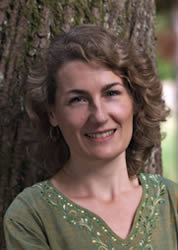
Article courtesy of BCHA Professional RHT member Chanchal Cabrera – Msc., FNIMH, RH (AHG), RHT
To view entire article with additional information, please visit: http://www.chanchalcabrera.com/bee-pollen/
Bee pollen is described by researchers as one of the very few “complete foods” available naturally and cannot be duplicated by man. Bee pollen is collected by honey bees and is carried by the forked hairs on the bees legs from the pistils of the stems of flowers. Pollen is the male sex cell of the flower which is heavy and sticky and is not the same as the airborne pollen that is a common allergen.
Bee pollen is a good source of protein, particularly for vegetarians and is said to contain up to five times the protein found in beef of equal weight.
Bee pollen contains: up to 35% protein, 22 amino acids (few products naturally contain all 22), 27 minerals, many enzymes, co-enzymes, vitamins A, C, D, E, B complex & B12, amines, growth factors, guanine, hydrocarbons, lecithin, nuclein, sterols, xanthine, pantothenic acid, rutin, potassium, 14 fatty acids and folic acid. No chemicals or pesticides are used in the harvesting of our pollen.
The bee pollen sold at Gaia Garden is collected in the Kilisilah hills behind Shawnigan Lake, Vancouver Island away from city and industry. The main wildflowers include Fireweed (purple), Dandelion (orange) and Canadian Thistle (creme colour). After collection, the pollen is dried for your convenience of easy storage and to prevent possible spoilage, then is cleaned and frozen for optimum freshness.
The usual serving is one to teaspoonfuls daily, starting with approximately one-quarter teaspoonful and gradually increasing. It may be mixed with honey, jam or yogurt or swallowed with a preferred liquid. If chewed it is suggested to rinse or brush following. For optimal freshness keep in a closed container out of direct sunlight and in a cool dry place.
About the Author:

Chanchal lives with her husband Thierry Vrain in Courtenay on Vancouver Island in BC where they cultivate vegetables and herbs on 7 acres and are building a healing garden retreat center. Visit Innisfreefarm.ca to read more about this.
Chanchal has been a member of the National Institute of Medical Herbalists since 1987 and obtained her MSc in herbal medicine at the University of Wales in 2003. She has an extensive background in orthomolecular nutrition and allergy therapy as well as clinical aromatherapy.
Chanchal has held the faculty chair in Botanical Medicine at the Boucher Institute of Naturopathic Medicine in New Westminster since 2004 and she serves on the board of advisors of Dominion Herbal College in Burnaby. She publishes widely in professional journals and lectures internationally on medical herbalism, nutrition and health.
www.chanchalcabrera.com